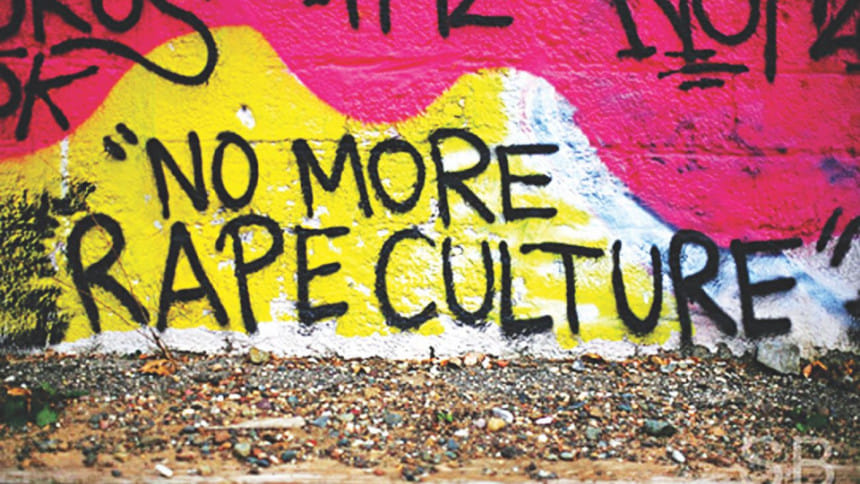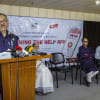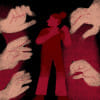Speaking of the 'unspeakables'

THERE is something fundamentally wrong with men (and women) who rape. It is a mal-adaptation of sex, a manifestation of psychopathology, a sign of being a sociopath or a psychopath, a tool to garner control, and an outward expression of deep internal anger and resentment. In the context of Bangladesh (as elsewhere), it is also a response to sexual repression, lack of education about sex and appropriate sexual behaviours, and patriarchal values that give men (or those with power) the right to dominate and control women and their bodies (or, whichever party is deemed to be powerless).
And there are different kinds of rape -- ones that happen within closed doors, between husbands and wives, or between significant others; acquaintance rape or date rape, where one is raped by someone they know, or someone they are trying to get to know; rape by strangers that may occur not only in public secluded places but also within the confined spaces of peoples' own homes; gang rape; and then, there is rape as a weapon of war, a tool of both individual and mass oppression. It is, however, important to note that barring war and conflict zones violence against women is committed predominantly by intimate partners across the world. In Bangladesh, the prevalence rates are high -- national samples indicate that approximately 53 percent of women in Bangladesh experience physical or sexual violence by their husbands at least once in their lifetime (BDHS 2007).
What is the etiology of the use of such a vile act to punish your significant other? Put him or her in "their place" as if it is up to them to decide who belongs where? How has it become such a tool of oppression on all levels -- micro (individual), mezzo (households), and macro (national/international) levels? How does it continue to go on with consequences that do little to protect potential victims of rape?
Because people don't seek help
Help-seeking for rape is rare to begin with, particularly in Bangladesh, despite the severity of violence involved. Be it from friends and family (due to shame, stigma, fear of being ostracised, fear of being blamed), law enforcement agencies (because justice is illusive, expensive, and public), and service providers (due to lack of information about them, misunderstanding or no understanding of the services they provide, and in many rural areas the dearth of such services). To add to that, the legal system in Bangladesh protects rapists by further traumatising rape victims who seek justice by using questionable rape kits that use the "two finger rule" in gender insensitive ways. Public knowledge of law enforcement officials raping women in custody further deters women (and men) from seeking help. Where men/boys are concerned, help seeking is close to non-existent. For them there is an added layer of stigma: stigma of their manhood being stripped; and fear of being ridiculed for not being able to stand up for themselves that prevents them from seeking any kind of recourse or justice.
But when women (or men) do seek help from existing laws they are ridiculed into non-action or marginalised by their communities to the extent that they are forced to withdraw their complaints. On the rare occasion that they are able to seek help with the support of their families, they have to work with law enforcement personnel who are often gender insensitive and discriminatory in their practices and have been accused of using victim-blaming tactics to marginalise violence against women as a social problem.
Amidst dire consequences
Consequences of rape are well documented: mental health issues -- particularly PTSD -- guilt complex, and self-esteem issues; physical health issues such as arthritis, digestive problems, chronic pelvic pain, and seizures; and engagement in risky and unhealthy behaviours such as substance abuse and self-injury. At the root of some of these consequences is perhaps the belief that it was their fault, that they were somehow responsible for what happened to them, for the rape. In an environment where there is extensive victim blaming (for example: in the media, and in social circles), and normalisation of rape (for example: via violent movies, pornography) there is increased likelihood of both feeling further victimised and being further victimised.
Needless to say, such trauma is debilitating for those who are at the brunt of such heinous acts. It is also debilitating for a nation that has limited resources and understanding of how to deal with rape and rapists, in spite of laws such as the Violence against Women's and Children's Act in Bangladesh that are well intended, but rarely accessed due to lack of knowledge, fear of retribution, and a tendency to keep private things private. That rape remains one of the most under-reported crimes in the world is indicative of how exclusionary the experience of rape is and how it makes individuals feel unsafe even in their own homes, unsafe enough to keep it to themselves.
The silencing role of the environment
That unsafe place is, to an extent, an element of mistrust that is adaptive for those who experience such violence. However, the environment in which they live fuels a large part of that mistrust as well. It is safe to say that friends and family, together with the larger social world including institutions such as the media, education, the arts, and literature have a large role in making the environment a safe one -- safe to speak, safe to share, safe to feel what they feel -- without fear of gossip and retribution, judgment and ridicule.
Recently, Theresa Fedor, a lawmaker in Ohio spoke before the state senate about her own experiences of rape while talking about reproductive health and abortion, and found that a man in the audience found it funny enough to laugh, which she then addressed. But not everyone can address such blatant disrespect; not everyone can call people out to tell them that rape is no laughing matter. But just because no one says anything doesn't mean that it's not wrong. If you find rape to be funny you need to seek help -- there is obviously something that you don't understand about rape that makes it funny for you. Find out what it is, for your sake and the sake of people around you.
And for everyone who justifies rape or violence against women (data from 2011 show about 30% of a national sample of women justified "wife beating" under certain circumstances) consider this: conflict management is a skill that can be learned and violence cannot be a healthy part of conflict resolution. Once violence is used, violence will be used again unless you play a part of corralling that.
The writer is Assistant Professor, School of Social Work, University at Buffalo and member of AlaloDulal Editorial Collective.

 For all latest news, follow The Daily Star's Google News channel.
For all latest news, follow The Daily Star's Google News channel. 








Comments